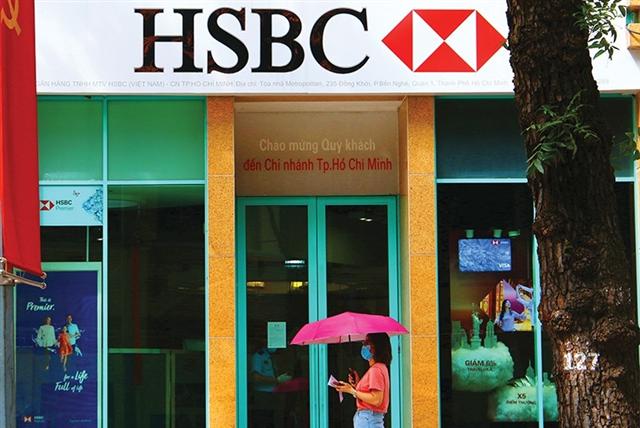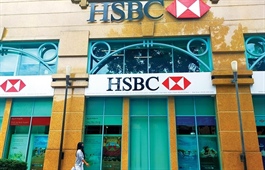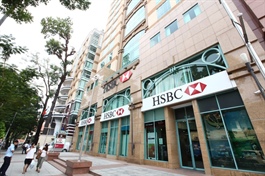Corporate bond bonanza shaking up local market
Corporate bond bonanza shaking up local market
Despite lingering risks, fears of an economic downturn, and low interest rates, there has been a windfall of corporate bonds issuance, with property providers and financial institutions the most active.

Corporate bond bonanza shaking up local market - illustration photo
|
Real estate corporations were undoubtedly the most active in the first half of 2020, accounting for 35 per cent of the aggregate corporate bond issuance volume, versus only 16 per cent in the same period of 2019.
The first six months of 2020 saw a flood of corporate bonds with VND159 trillion ($6.9 billion). The issuance value of the property segment increased by 197.6 per cent on-year to around VND60 trillion ($2.6 billion), while domestic credit institutions mobilised more than VND47.3 trillion ($2.1 billion) via debt issuance, accounting for 28 per cent of the total issuance value.
Last week, real estate company Apec Group approved a plan to issue 30 million 5-year corporate bonds called Happy18Bond, with coupon rates of 18 per cent. The batch is scheduled for the last few months of the year, and total value is expected to be around VND3 trillion ($130.43 million).
With the abnormally high annual interest rate of 18 per cent, Apec is leaving other property giants in the shade. For instance, Novaland offers coupon rates of 10-11 per cent for its corporate bonds, while City Garden does 13 per cent, Phat Dat Real Estate 10-14 per cent, TNR Holdings 10.9 per cent, and Phu My Hung 7.15 per cent.
Pham Tien Dzung, deputy head of research at Bao Viet Securities (BVSC), told VIR that the average coupon rate on corporate bonds is approximately 9-10 per cent. Thus, Happy18Bond offers nearly twice the average yield, and around 71 per cent more than bonds from real estate peers.
Specifically, Apec is betting on condotels – a bold move after the lacklustre tourism real estate market almost froze over following the collapse of Cocobay and the market volatilities stemming from the outbreak.
A few days ago, state-owned lender VietinBank also signalled the upcoming launch of its second batch of corporate bonds to the public, expressing firm belief in success thanks to the bank’s ample performance.
Other domestic lenders such as VPBank, BIDV, OCB, HDBank, VIB, and SHB have embarked on a journey to raise more funds via bond issuance.
Particularly, HSBC Vietnam last month became the first-ever foreign commercial bank to issue bonds in Vietnam, releasing a total of VND600 billion ($26.1 million) of bonds. At a par value of VND100,000 ($4.34), HSBC Vietnam’s Lotus bond, named after Vietnam’s national flower, offers a fixed coupon rate of 5.8 per cent and a tenure of three years.
Market watchdogs believed HSBC’s bond issuance in Vietnam may set a precedent for other foreign banks to strengthen their funds, but it could take a while. In fact, the size of HSBC’s first batch is relatively small, but it can also be an example for other lenders to follow.
|
Decree No.81/2020/ND-CP, which revises some bond issuance conditions in Decree No.163/2018/ND-CP on issuance of corporate bonds, became effective from September 1. The domestic corporate bond market is expected to adopt greater transparency following the revision of issuance regulations. - Total outstanding value via private placement must be less than three times a firm’s equity, according to the latest quarterly financial statements. Furthermore, total outstanding value, including new offering amounts, must be less than five times the total equity; - New issuances must be completed within 90 days from the announcement date and the minimum length of time between two issuances must be at least six months; - The purpose of capital usage must be clarified in the registration filings. As for financial institutions, the purpose of capital raising could be for increased Tier 2 capital, lending, or investment; - Issuers must acquire the services of an underwriter, except for those financial institutions that have investment banking services. |
The State Bank of Vietnam’s (SBV) slashing of interest rates to assist cash-squeezed enterprises has played a major role in lifting corporate bonds. As interest rates – or coupons – dropped, financiers began shifting focus to high-yield bonds, commonly known as junk bonds, which were higher risk but also paid higher interest. Companies are now in a “dash-for-cash”, seeking for investors with high-risk tolerance.
Banks, widely perceived as “safe issuers” in Vietnam, had the lowest coupon rate with a weighted average of 6.5 per cent. Furthermore, the banking industry was among the key issuers with the highest offering values, with a success rate of 82.6 per cent for offerings. Risks associated with bank bonds pale in comparison to other industries, as risk management initiatives for banks are strongly controlled by the SBV, according to Mirae Asset Securities.
The health crisis, however, continues to exert hardships on the banking industry, lowering profits from bread-and-butter lending services, thus hurting the net profit margin of lenders.
Nguyen Hoai Thu Thao, director of Treasury and Global market at Shinhan Bank Vietnam, said, “Recently, corporate bonds issued by credit institutions – including foreign-invested banks – have mushroomed in size. This move stems from two main reasons. Firstly, this debt instrument could reduce the pressure on raising medium- and long-term funds. It aims to strengthen Tier 2 capital, thus enhancing the resilience of banks during the economic meltdown. As a result, lenders also get more room for credit growth and satisfy Basel II requirements.”
“Secondly, corporate bonds, as an effective capitalisation channel, might help banks to align with the SBV’s roadmap of gradually reducing the ratio of short-term capital for mid- and long-term loans,” she added.
Foreign banks only account for around 10 per cent of the total banking assets in Vietnam, with some even withdrawing capital from the market. Some notable overseas lenders, such as Standard Chartered, Shinhan Bank, Woori Bank, Citibank, UOB, Bangkok Bank, Deutsche Bank, and Kookmin Bank have not yet published their plans for bond issuance to date.





















